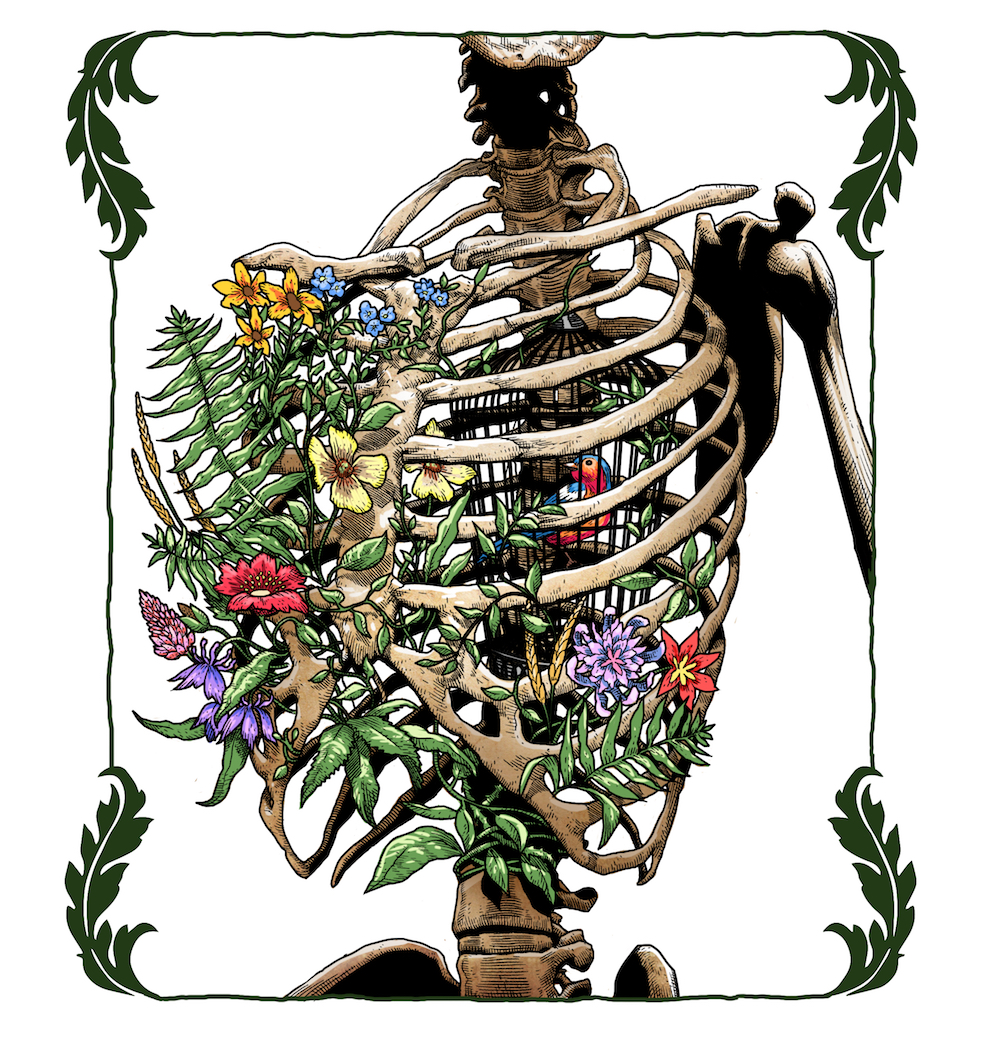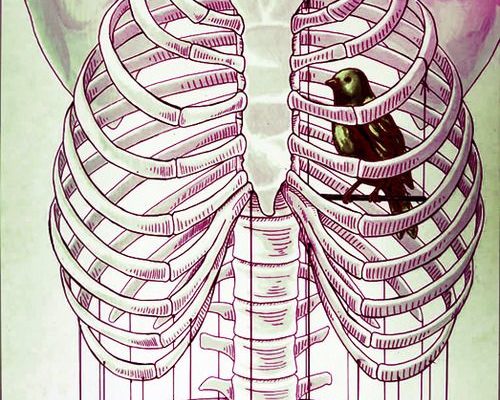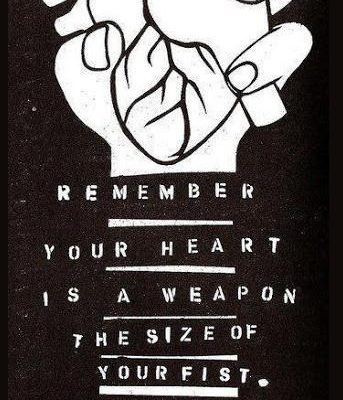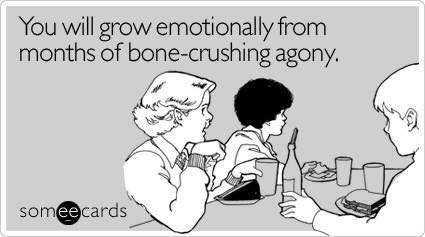This blog was originally hosted at Empty Cages Design.org as part of a series on Overcoming Burnout from 2016-2017. It has now been turned into a book that is available at: https://solidarityapothecary.org/overcomingburnout/
I am stoked to say this is my last blog in the Overcoming Burnout series. I never expected my writing to grow into this project or be read by as many people as it has. The feedback and support I’ve had from all over the world has completely blown my mind. Thank you a million times over.
So to close, I want to write my final reflections and feelings about this stuff before wrapping it up.
We might believe through our social conditioning that it’s us against the world, or that we achieve a lot through our own efforts, self-discipline and so forth. Yet perspectives like this can make us blind to structural power and privilege and reinforce the individualistic tendencies of our culture. They can invisibilise the caring and emotional labour involved in supporting each other from drowning.
In my first blog, I wrote how I was lifeless and in pain. I was in and out of the hospital. I was sleeping 16 hours a day. My system was on total shutdown. Right now I’m still grappling with my pesky ribs but overall I’m feeling stronger and more resilient and am actively organising, socialising and working again, albeit at a more steady pace and with a lot of interventions to not go under.
Yet I know that tons of my friends with chronic illnesses can’t follow this trajectory because of the kinds of illnesses or disabilities they have or for many other reasons. For many, they are struggling physically and/or psycho-emotionally because of structural barriers blocking their access to care and support. I also want to emphasise that I am definitely not saying that able-bodiedness is some kind of goal, I’m just trying to highlight the structural barriers to support.
So I want to acknowledge this with radical honesty – the sheer privilege of the support I’ve been able to leverage has been what’s really helped me overcome burnout: my access to land and safe, secure housing. My huge network of friends and contacts in the anarchist movement and other circles like permaculture. My existing knowledge of herbalism and my access to an amazing network of radical herbalists. Financial support from my grandad, in the beginning, to access specialists beyond the NHS who treated me with acupuncture and bodywork. My co-workers in my workers co-operative that held the fort the best they could when I crashed and burned. My incredible amazing comrades who sucked up my workload, helped transform our collectives into more sustainable models, and emotionally supported me to process my shit while physically trying to enable my continued participation in our struggles, like ensuring warm places to stay or carrying my bags. Free weekly counselling sessions from a caring comrade were life changing. My wonderful mum and sister who felt so present and consistent. Yes, I put a lot of effort into processing my shit, into researching treatments and changing my lifestyle, but ultimately it was a whole ecosystem of support that kept me going.
And it’s with a heavy heart that I know this is not the reality for 99% of people. Atomisation, alienation and loneliness plague capitalist existence. Many can only access state healthcare that may be damn amazing in emergency rooms, but when it comes to complex chronic illnesses, just isn’t set up for that level of support. Many people are estranged from their families. Unending numbers of people have precarious housing and income. Tons of people genuinely don’t have many friends or the relationships they have feel eternally dissatisfying in terms of support or affection. Thousands are imprisoned and we know inside health care is labelled “health scare” because the levels of neglect are appalling. People without papers are unable to access most services. Many don’t have English as a first language. My trans friends are more likely to have their trauma triggered when visiting a doctor or even an alternative health practitioner. The list is endless.
For me, responding to burnout as a political issue is less about “self-care” or lifestyle choices, and more about building mutual aid and collective models of care. Overcoming burnout has to a collective effort, and healthcare has to be a centre of our struggles.
Sometimes organising is hard graft. It’s impacted my relationships, livelihood, health and I guess took away my freedom on multiple levels. Yet now I’m a lot better and I can look back on the last months I can see that holy fuck am I glad to be part of these communities and networks.
Though sadly this experience is not universal. I know many mates have had the opposite feeling or experience in relation to anarchist or other social movements. Many have felt abandoned; that now they are not “active” it’s like they have disappeared to people.
So I wriggle around with more self-doubt. Is my access to support larger in comparison because I’ve been so public about it? Is it because I’m a visible organiser? Is it because I’m an extrovert that can confidently ask for support and articulate my feelings? Why have so many people burnt out and completely dropped out because of lack of support when others manage to access it?
I’ll never know the answers to these questions because I can only safely speak for myself, and I can only try to listen to the people around me or those comfortable to share their voices. But I feel they are important questions to raise and I think we need to start talking more about “social capital” in terms of accessing support and resources.
It’s taken a long time to cultivate this support web around me. Back as a teenager, after my house was raided by the police only one friend called me to see if I was okay. I had no financial safety net. My partner and I at the time were on benefits. We lived off vegan sausage rolls from Asda. Sure I knew lots of people in the animal liberation movement, but solidarity wasn’t valued and those six years of acute state repression were all out war on my relationships.
Just before going to prison, after working 70-80hr weeks in care work to clear my debt, I got my first half tattoo sleeve done. My tattoo reads “never alone”. I got it to remind me how non-humans and the land are always on our side in resistance and with feeling this came strength. Yet unpacking it more I can see that loneliness or abandonment were perhaps my biggest fears. The deaths of close friends and family leading up to my burnout only compounded these fears. This vulnerability pushed me to invest in relationships, and burnout meant that more than ever I needed to learn to trust other people and let them in and let them care for me.
There are so many things I haven’t been able to write about that I have wanted to – the role of ACES (adverse childhood experiences), a larger blog about herbalism and burnout, a piece on anarchist healthcare and existing mutual aid networks and the list goes on. Overcoming burnout, for me, has been about accepting my limits. I can’t write all this stuff even if I wanted to, and that is really, really, okay.
Overcoming burnout has been about choosing a focus and accepting my capacities, and figuring out the biggest gifts I can bring to social struggles. Overcoming burnout has been about what relationship models actually work for me and are not the prescribed societal way of loving other people. Overcoming burnout has been about grieving my dead friends. Overcoming burnout has been about reclaiming my witchiness and spirituality. Overcoming burnout has been about unlearning habits and patterns of a lifetime and trying desperately amidst a fucked up world to try and set some boundaries for myself and keep my body rested and nourished so that I can survive, fight back and feel joy.
So that’s all folks! Thank you for reading. Thank you for your support and solidarity on this journey.
Until all are free,
Nicole





No Comments